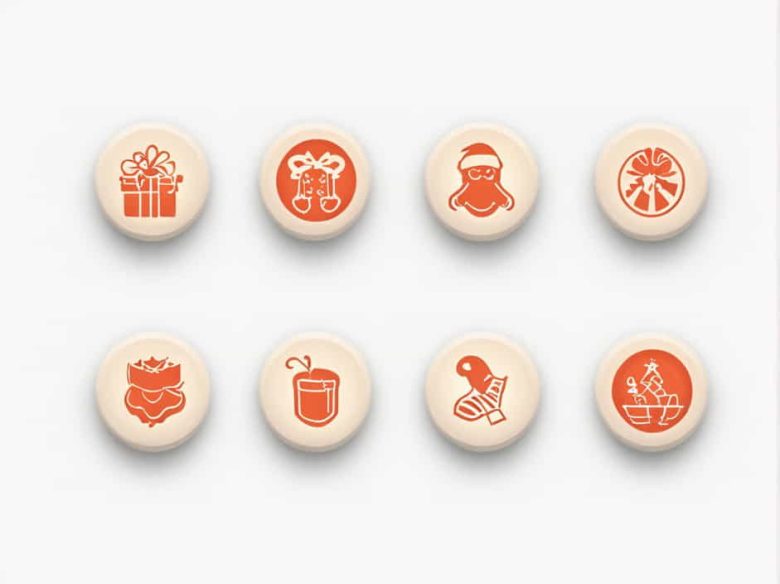Xmas is a widely recognized abbreviation for Christmas often used in casual writing advertisements and holiday greetings. While some people assume that “Xmas” is a modern invention or an attempt to remove Christ from Christmas the term has deep historical and linguistic roots.
This topic explores the meaning of Xmas its origins significance and how it is used in modern times.
The Meaning and Origins of Xmas
The term Xmas originates from Greek. The letter “X” comes from the Greek letter Chi (Χ) which is the first letter of Χριστός (Christos) meaning “Christ.” The use of “X” to represent Christ dates back to early Christianity making Xmas a historically valid abbreviation for Christmas.
Despite common misconceptions Xmas does not remove “Christ” from Christmas. Instead it is a shorthand way of writing the holiday’s name particularly in print and informal communication.
The Historical Use of Xmas
Xmas has been used for centuries by religious scholars and writers. Some key historical points include:
- Medieval Times: Christian scribes often used “X” as a symbol for Christ in religious texts.
- The 16th Century: The term Xmas became more common in English writings.
- The 18th and 19th Centuries: Xmas appeared in printed materials holiday cards and even literature.
The abbreviation was widely accepted in religious and academic circles long before it became a mainstream term.
Xmas vs. Christmas: Are They the Same?
Many people wonder whether Xmas and Christmas carry the same meaning. While they refer to the same holiday their usage can differ:
| Term | Meaning & Usage |
|---|---|
| Christmas | The full traditional name of the holiday used in formal and religious contexts. |
| Xmas | A shortened version often used in informal writing advertising and greetings. |
Both terms celebrate the same holiday and using Xmas does not diminish the religious significance of Christmas.
Why Do People Use Xmas Instead of Christmas?
There are several reasons why people use Xmas instead of Christmas:
1. Space and Convenience
- Xmas is shorter and easier to write especially in print or when space is limited (e.g. advertisements headlines and greeting cards).
2. Historical Tradition
- As mentioned earlier the use of “X” for Christ dates back centuries and has been used by Christian scholars.
3. Commercial and Marketing Purposes
- Many businesses use Xmas in advertisements because it takes up less space and looks visually appealing.
Misconceptions About Xmas
Despite its historical background some people believe Xmas is disrespectful or secular. Let’s debunk a few common myths:
Myth 1: Xmas Removes Christ from Christmas
- False. X” is a recognized abbreviation for Christ in historical Christian writings.
Myth 2: Xmas Is a Modern Secular Term
- False. The term has existed for centuries even in religious contexts.
Myth 3: Christians Should Avoid Using Xmas
- False. Many religious texts and traditions have used “X” to represent Christ. It does not diminish the holiday’s meaning.
How Xmas Is Used in Modern Times
Today Xmas is used in various ways across different platforms:
1. Greeting Cards and Decorations
- Many holiday cards use “Merry Xmas” as a festive and space-saving alternative to “Merry Christmas.”
2. Advertising and Marketing
- Businesses and brands use Xmas in promotions to create catchy and compact advertisements.
3. Social Media and Digital Communication
- In texting social media posts and casual writing people often use Xmas as an abbreviation to save time and characters.
Cultural and Religious Views on Xmas
Christian Perspectives
- Some Christians prefer “Christmas” over “Xmas” to emphasize the religious aspect of the holiday.
- Others accept Xmas as a historically valid abbreviation.
Secular and Cultural Perspectives
- Many non-religious people use Xmas as a neutral way to refer to the holiday season.
- The term has become widely accepted in pop culture music and entertainment.
Is It Okay to Use Xmas?
Yes! Using Xmas is completely acceptable whether in a casual or formal setting. However if you are addressing a religious audience using “Christmas” may be more appropriate. The choice depends on personal preference and context.
Xmas and Christmas Are One and the Same
Xmas is simply a shorter way of writing Christmas with a history that dates back to early Christianity. While some people misunderstand its origins the term is widely accepted and used in various forms today.
Whether you prefer “Christmas” or “Xmas” the true spirit of the holiday remains the same—celebrating love joy and togetherness.



